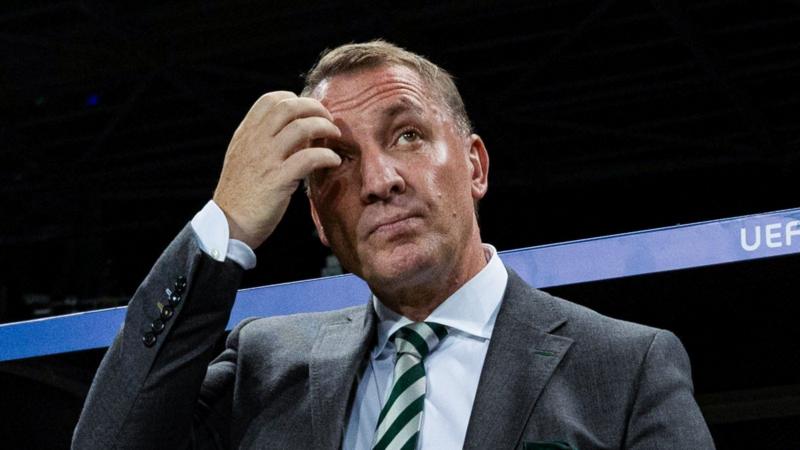Who's at Fault? Celtic's Shocking Champions League Collapse!




The night was thick with disappointment at Celtic Park as the final whistle confirmed Celtic’s premature exit from the UEFA Champions League. The dreams of making a significant mark on Europe’s most prestigious club tournament were dashed, leaving fans and pundits alike to mull over what went wrong for the Scottish giants.
With a setup designed to compete intensely at international levels, Celtic's aspirations were high before their Champions campaign. Step by step, action by action, the team had crafted a path that many believed would at least see them through the group stages. However, reality hit hard and now, as the dust settles, the in-depth analysis begins.
Tom English, BBC Scotland's chief sportswriter, has been closely observing the journey of Celtic in the Champions League. According to English, several factors contributed to Celtic's downfall this season. Tactically, the team struggled to adapt to the high-pressure scenarios that are a staple in international competitions. The lack of flexible tactical adjustments during crucial game moments likely cost the team valuable opportunities.
Player performance also played a role. While Celtic boasts some gifted players who can dominate domestically, it seems stepping up to the rigorous demands of European football proved a bridge too far for some key squad members. It wasn't just about the physicality but also about mental readiness and game maturity, areas where gaps were glaringly evident.
The management will not escape scrutiny either. Questions will be asked of the coaching staff's ability to prepare and motivate their team for the European stage. Each match in the Champion’s League brings unique challenges, and the ability to innovate strategies and make decisive, effective decisions under pressure is critical.
Beyond the tactical and performance-related issues, there is also a question of player roster depth. European matches come thick and fast, often requiring squad rotation which Celtic might not have been fully prepared for. This intense schedule can wear down key players and without adequate replacements, the team’s performance can dip, affecting results crucially.
However, it's not all doom and gloom. There are always opportunities in the face of defeat. For Celtic, this exit serves as a stark reality check on where they stand in the hierarchy of European football. It’s an opportunity for the club to regroup and reassess their strategies both on and off the field. Rebuilding and planning for future campaigns can now take precedence, hopefully with lessons learned from this experience.
The fallout from this exit will likely see Celtic focusing more intensively on domestic responsibilities, where they continue to perform strongly. This would not only serve to regain confidence but also to consolidate resources that can help in building a more resilient setup for international competitions in the future.
One immediate impact will be on the club's financial outlook. Champions League participation has a significant financial boon through matchday revenues, broadcasting rights, and commercial opportunities. Missing out on these benefits impacts the club’s budget and spending capacity, potentially affecting transfer policies and player acquisitions.
Moreover, the psychological impact on the team and its fanbase cannot be underestimated. Recovering from such a disappointment will be crucial for the team's morale. The management and players need to ensure that they win back their fans' trust by showing resilience and an improved approach in upcoming fixtures.
In conclusion, Celtic’s exit from the Champions League is indeed a setback, but also a chance for a strategic recalculation. While the present scenario looks grim, it is these challenging moments that can set the stage for future victories. With the right adjustments, a renewed focus on squad depth and strategy, and continuous improvement, Celtic can hope to return stronger, ready to claim their place among Europe’s footballing elite.